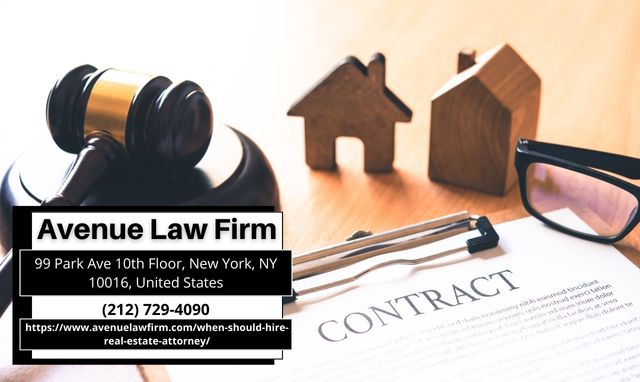Looking to hire a real estate lawyer but not sure where to start? Look no further! In this comprehensive guide, we will provide you with all the information you need to find and hire the right real estate attorney for your needs. From understanding the role of a real estate lawyer to knowing when to hire one, we’ll cover it all. Whether you’re in search of a real estate attorney near you or curious about the cost of their services, we’ve got you covered. By the end of this guide, you’ll have the knowledge and confidence to navigate the world of real estate law and make informed decisions throughout the process.
Real Estate Lawyer: A Complete Guide to Hiring the Right Attorney
What is a Real Estate Lawyer?
A real estate lawyer is a legal professional who specializes in matters related to real estate law. This includes buying and selling property, reviewing contracts and agreements, handling disputes, and providing legal advice and guidance throughout the entire real estate transaction process. Real estate lawyers are essential for ensuring that all legal aspects of a real estate deal are properly addressed and that the rights and interests of their clients are protected.
Why Do You Need a Real Estate Lawyer?
Hiring a real estate lawyer is crucial when it comes to any real estate transaction. Whether you are buying or selling a property, having a legal expert by your side can provide numerous benefits and peace of mind. Real estate deals involve complex legal documents, negotiations, and potential risks. A real estate lawyer can help you navigate through the intricacies of the process, review contracts and agreements, identify potential issues, and protect your rights and interests. They are trained professionals with in-depth knowledge of real estate law, ensuring that all legal aspects are addressed and your transaction proceeds smoothly.

This image is property of Amazon.com.
When Should You Hire a Real Estate Lawyer?
Ideally, you should hire a real estate lawyer as soon as you decide to engage in any real estate transaction, whether it’s buying, selling, or even leasing property. Bringing in a lawyer at the beginning of the process allows them to guide you from the start and prevent any potential legal pitfalls. However, if you haven’t hired a real estate lawyer yet and find yourself facing legal issues or complications during a transaction, it’s never too late to seek their expertise. These professionals can step in at any stage of the process to resolve disputes, provide legal advice, and protect your interests.
Benefits of Hiring a Real Estate Lawyer
The benefits of hiring a real estate lawyer are numerous and essential for a successful real estate transaction. Firstly, they provide expert advice and guidance throughout the entire process. They review contracts, agreements, and other legal documents to ensure that your rights and interests are protected. They also help to negotiate better terms and conditions, saving you money and potential future issues. Additionally, real estate lawyers conduct thorough due diligence, uncovering any hidden risks or liabilities associated with the property. By having a lawyer handle the legal aspect of your real estate transaction, you can have peace of mind knowing that you have a professional watching out for your best interests.

This image is property of wptest.uslegalservices.net.
How to Find a Reliable Real Estate Lawyer
Finding a reliable real estate lawyer is crucial for a smooth and successful real estate transaction. Here are some steps you can take to find the right lawyer for your needs:
- Research and ask for recommendations: Start by researching local real estate lawyers in your area. Look for recommendations from friends, family, or colleagues who have previously worked with real estate lawyers. Their personal experiences can provide valuable insights.
- Check online directories: Online directories, such as the American Bar Association’s lawyer directory, can help you find real estate lawyers in your area. These directories often provide information about the lawyer’s practice areas, experience, and contact details.
- Read reviews and testimonials: Take the time to read reviews and testimonials from previous clients. This can give you an idea of the lawyer’s reputation, their level of expertise, and how satisfied their clients were with their services.
- Schedule consultations: Once you have compiled a list of potential real estate lawyers, schedule consultations with each one. This will give you an opportunity to discuss your case, ask questions, and assess whether they are the right fit for you.
- Consider experience and specialization: Look for real estate lawyers with ample experience in handling cases similar to yours. Specialization in real estate law is also an important factor to consider, as it ensures that the lawyer has in-depth knowledge of the specific legal issues related to real estate transactions.
Remember to trust your instincts and choose a lawyer who you feel comfortable working with and who you believe has your best interests at heart.
Questions to Ask When Hiring a Real Estate Lawyer
During your initial consultation with a potential real estate lawyer, it’s important to ask the right questions to determine their suitability for your needs. Here are some crucial questions to consider:
- What is your experience in real estate law?: Inquire about the lawyer’s experience in handling real estate cases. Ask about their track record and whether they have worked on similar cases in the past.
- Are you familiar with the local real estate market?: If you are buying or selling property in a specific area, it’s important to choose a lawyer who is familiar with the local real estate market. They will have knowledge of any specific regulations or laws that may impact your transaction.
- How do you communicate with your clients?: Communication is key during a real estate transaction. Ask the lawyer how they prefer to communicate with their clients and how frequently you can expect updates on your case.
- What are your fees and billing structure?: It’s important to discuss the lawyer’s fees and billing structure upfront. Ask about their rates, how they bill (hourly, flat fee, etc.), and what additional costs you can expect throughout the process.
- Do you have references or testimonials from previous clients?: Request references or testimonials from previous clients to get a better understanding of the lawyer’s reputation and the quality of their services.
These questions will help you assess the lawyer’s expertise, communication style, and their ability to handle your specific real estate transaction.

This image is property of www.rocketmortgage.com.
Understanding the Cost of Hiring a Real Estate Lawyer
The cost of hiring a real estate lawyer can vary depending on various factors such as location, complexity of the transaction, and the lawyer’s experience. Real estate lawyers typically charge either an hourly rate or a flat fee for their services. Hourly rates can range from $150 to $500 or more, depending on the lawyer’s experience and reputation. Flat fees, on the other hand, are often charged for more straightforward transactions such as reviewing contracts or drafting agreements.
In addition to the lawyer’s fees, there may be other costs associated with your real estate transaction, such as filing fees, title searches, and other administrative expenses. It’s important to discuss these costs with your lawyer during the initial consultation to have a clear understanding of the total expenses involved.
While the cost of hiring a real estate lawyer may seem significant, it is a worthwhile investment considering the potential risks and complications that can arise during a real estate transaction. Having a professional by your side can save you from costly mistakes and legal issues in the long run.
What to Expect When Working with a Real Estate Lawyer
When you hire a real estate lawyer, you can expect them to take care of all the legal aspects of your real estate transaction. They will review contracts and agreements, ensure that all legal requirements are met, and address any potential issues or concerns that may arise. Real estate lawyers will also represent your interests during negotiations and provide guidance and advice throughout the entire process.
Working with a real estate lawyer requires open communication and trust. Be sure to provide them with all relevant information and documents related to your transaction and address any questions or concerns you may have. Your lawyer will keep you informed about the progress of your case, provide updates on any developments, and guide you towards the best possible outcome.

This image is property of www.avenuelawfirm.com.
Common Real Estate Legal Issues
Real estate transactions can be complex, and various legal issues can arise. Here are some common real estate legal issues that a real estate lawyer can help you navigate:
- Contract disputes: Disagreements over the terms and conditions of a contract can arise, leading to potential legal disputes. A real estate lawyer can help you resolve contract disputes and ensure that your rights are protected.
- Title issues: Title issues, such as encumbrances or competing claims, can complicate a real estate transaction. A real estate lawyer can conduct title searches and address any title issues to ensure a clear and marketable title.
- Zoning and land use: Understanding and complying with zoning and land use regulations is crucial when buying or developing property. A real estate lawyer can help navigate zoning laws, obtain permits, and address any issues related to land use.
- Foreclosure: If you are facing foreclosure, a real estate lawyer can guide you through the process, explain your options, and potentially help you avoid foreclosure.
- Boundary disputes: Boundary disputes with neighboring property owners can be challenging to resolve. A real estate lawyer can review surveys, address boundary disputes, and protect your property rights.
These are just a few examples of the legal issues that can arise during a real estate transaction. Having a real estate lawyer by your side can help identify and resolve these issues before they escalate and cause significant problems.
Conclusion
Hiring a real estate lawyer is an essential step when engaging in any real estate transaction. These professionals provide expert legal advice, protect your rights and interests, and ensure that all legal requirements are met. From reviewing contracts to addressing disputes, real estate lawyers play a crucial role in ensuring the smooth and successful completion of your real estate deal. By following the steps outlined in this guide and asking the right questions, you can find a reliable and experienced real estate lawyer who will guide you through the process and help you achieve your real estate goals with confidence.

This image is property of www.maxrealestateexposure.com.
